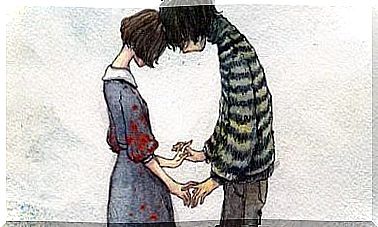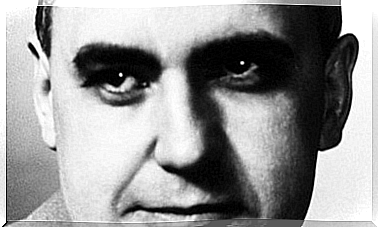Tiredness Feeds Unpleasant Or Painful Memories

Unpleasant memories can surface in our memory from time to time. However, recent studies show us that the tiredness, fatigue and exhaustion that sometimes grips us can feed painful reminiscences of yesterday. Something like this can be harmful and dangerous for someone who already suffers from a psychological disorder such as anxiety or depression.
The truth is that fatigue itself or daily tiredness are phenomena that until now had not been adequately explored. These states have long been assumed to be the simple result of the accumulation of work and the loss of physical energy.
However, as many of you know, there are states of exhaustion that are not always caused by physical effort. One can come home without strength and courage after an argument with the family. Environmental stress or even having to do something that causes us annoyance or anxiety also shapes these psychophysiological states. Now, the fact of knowing that fatigue encourages the appearance of adverse memories, makes this reality an issue that we should keep more in mind.

Why does tiredness feed unpleasant or painful memories?
A team of scientists led by Dr. Marcus Harrington of the University of York has investigated the relationship between tiredness and unpleasant memories. They have obtained evidence that this phenomenon appears more frequently among patients suffering from post-traumatic stress disorder.
Remember, post-traumatic stress arises as a result of an experience or exposure to something with a high emotional impact. Experiences of abuse, family or partner abuse, the loss of a loved one or even having suffered workplace mobbing lead to these states of intense anxiety. Well, apparently there is a direct link between fatigue and the memory of those traumatic events.
Tiredness and lack of sleep
There is another obvious fact that we must consider. Tiredness and lack of rest at night are in turn related to unpleasant memories. This is something that many of us have undoubtedly experienced on occasion. Sometimes the failure to get a good night’s sleep translates into physical and mental exhaustion.
In turn, when we suffer psychological fatigue, when we accumulate many worries, it is also common to suffer from insomnia. These situations in which exhaustion is combined with bad rest cause painful memories of yesterday and intrusive thoughts to come to our memory.
Accumulated fatigue has an impact on our cognitive processes
When we talk about tiredness, exhaustion and fatigue, it is common to focus on the physical aspect. Now, for some years now, more attention has been paid to the phenomenon of fatigue, to understand it as the lack of real or subjective energy that affects both the physical and mental planes (Eldadah). What’s more, the Diagnostic and Statistical Manual of Mental Disorders (DSM-5) points out something important about it.
In many cases, fatigue prevents us from functioning normally from a cognitive level. What does this mean? Implies that we hardly think, pay attention, make decisions, etc. In turn, all of this affects the mental aspect, thereby making us more vulnerable and bringing traumatic events to our memory.

Tiredness and intrusive thoughts, how to deal with them?
Tiredness, fatigue that won’t go away, and insomnia that lasts for a long time can cause you to go from PTSD to depression. They are clinical realities of great vulnerability that we must address. When the body feels weaker than usual, the mind also breaks down, weakens and drifts.
Unpleasant memories like intrusive thoughts cannot be hidden or pushed aside. We must learn to handle these situations through psychological therapy.
Treat mental fatigue and traumatic memory through therapy
If tiredness evokes unpleasant memories, it is because there is basically an untreated reality. Traumas and those adverse experiences of yesterday can be addressed through approaches such as cognitive therapy. Likewise, strategies such as EMDR ( Eye Movement Desensitization and Reprocessing) and rational emotional behavioral therapy or TREC have shown good results.
The objective in these types of therapies is to work on thoughts and emotions, to allow the person to integrate those experiences and minimize the trauma.
The correct rest and the good habits of life
As we have already pointed out, post-traumatic stress disorders and even anxiety itself always go hand in hand with poor night’s rest. It is important to attend to this reality. Promoting a good night’s sleep is something that we must promote by taking care of schedules, going to sleep at the same time and disconnecting electronic devices two hours before sleeping.
On the other hand, attention to lifestyle habits, proper nutrition and staying physically active can also help us. Resources or practices such as deep breathing or mindfulness can also help us , very suitable to relieve both mental and physical tension. Let us keep in mind this series of tips to achieve a more dignified and full well-being in every way.









